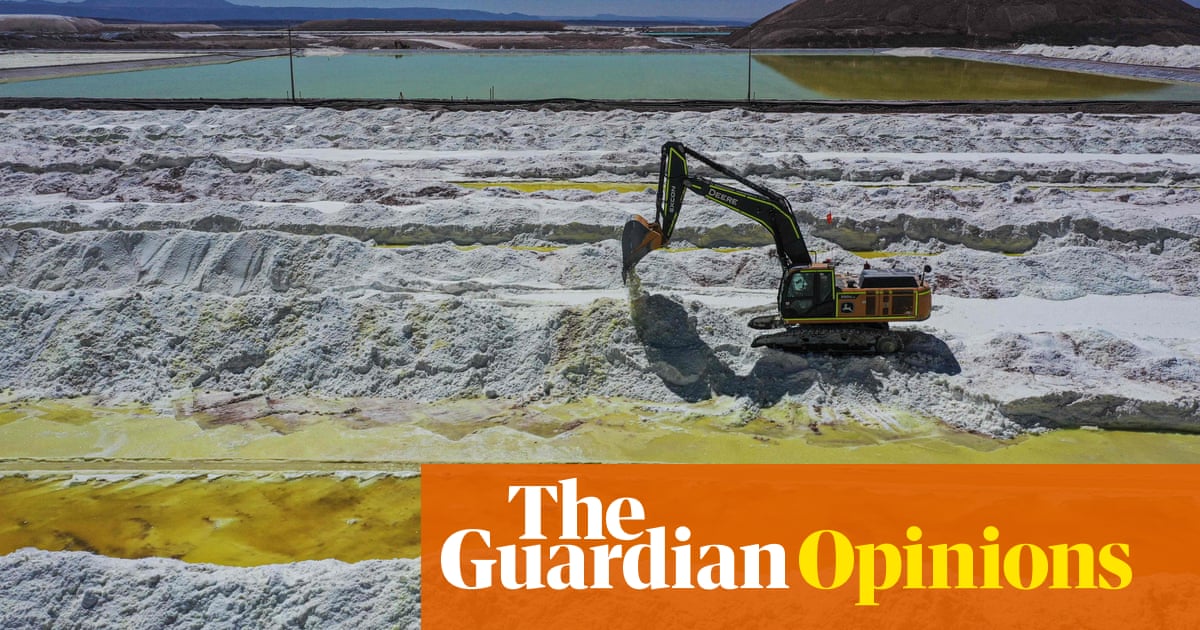- cross-posted to:
- technology@lemmy.ml
- cross-posted to:
- technology@lemmy.ml
Despite its name, the infrastructure used by the “cloud” accounts for more global greenhouse emissions than commercial flights. In 2018, for instance, the 5bn YouTube hits for the viral song Despacito used the same amount of energy it would take to heat 40,000 US homes annually.
Large language models such as ChatGPT are some of the most energy-guzzling technologies of all. Research suggests, for instance, that about 700,000 litres of water could have been used to cool the machines that trained ChatGPT-3 at Microsoft’s data facilities.
Additionally, as these companies aim to reduce their reliance on fossil fuels, they may opt to base their datacentres in regions with cheaper electricity, such as the southern US, potentially exacerbating water consumption issues in drier parts of the world.
Furthermore, while minerals such as lithium and cobalt are most commonly associated with batteries in the motor sector, they are also crucial for the batteries used in datacentres. The extraction process often involves significant water usage and can lead to pollution, undermining water security. The extraction of these minerals are also often linked to human rights violations and poor labour standards. Trying to achieve one climate goal of limiting our dependence on fossil fuels can compromise another goal, of ensuring everyone has a safe and accessible water supply.
Moreover, when significant energy resources are allocated to tech-related endeavours, it can lead to energy shortages for essential needs such as residential power supply. Recent data from the UK shows that the country’s outdated electricity network is holding back affordable housing projects.
In other words, policy needs to be designed not to pick sectors or technologies as “winners”, but to pick the willing by providing support that is conditional on companies moving in the right direction. Making disclosure of environmental practices and impacts a condition for government support could ensure greater transparency and accountability.



Dunno about Microsoft and AWS but AFAIK Google has been powering all their data centers with “renewables” for a very long time.
I’m pretty sure many of these data centers have dedicated power sources due to the high consumption, and opt for things like hydroelectric due to cost per watt.
And at least there’s a serious end product delivered, unlike crypto mining which wastes trillions of hashes to make a secure transactional network.
At least here in the Netherlands, there was a lot of commotion because a data centre tried to buy a windmill park meant to power households as their dedicated power source
New data centers should be forced to also build additional new renewable power.
This would be a decent policy, probably+10% max expected capacity or something and contribute back to the grid.
The whole article is blaming t"the cloud" as if it didn’t serve services consumed by users. What do they want? To shut down the internet?
Energy transition is something these companies are working on.
https://sustainability.aboutamazon.com/climate-solutions/carbon-free-energy
Reaching these goals isn’t easy.
Yeah, cuz consumers really like getting useless ai results mixed in with their searches and shit. I don’t know how I lived before having clippy 2.0 added to fucking everything, including my desktop.
It’s entirely relevant to blame producers for creating and shoving this shit down our throats.
You know you can disable the AI overview from Google, right?
Quit being so dramatic. Nobody is forcing you to use those things. Lemmy in particular is full of people who talk in detail about how they’ve replaced products and services from companies like Google and Microsoft with alternatives they find more consumer-friendly. And I guarantee you major brands are gonna offer ways to turn off AI features, because turning them off saves a lot of money in data centers and improves battery life in consumer systems.
That’s mainly just bitcoin at this point. Other top network use proof of stake. Dont throw the baby out with the bath water.
Also, I’d reckon a secure transactional network is a serious end product. But I understand most here don’t share the same freedom of money philosophical views as the cypherpunks.
Microsoft pledged to be carbon neutral by 2030. Remains to be seen how much greenwashing that is versus actually doing things.
I, too, pledge to be carbon neutral by 2030.
If I cannot meet the criteria, I’ll just move the deadline. Easy peasy, squeeze the world out of resources lemon squeezy.
And the new material science discoceries etc should really help. Given that DeepMind used GNoME to find 2.2 million new crystals, including 380,000 stable materials. That’s kinda a big deal. That was November of last year. Haha people have no idea how much this could help us. We fucked up but the light is shining and we need to run fast. I’m pretty sure, short this miraculous pace of discovery and compound returns, we will/would end up in a runaway climate feedback loop. IPCC has been throwing out their best models because they don’t like the implications that it is going faster than expected and the climate sensitivity may be worse than expected.
People think AI is gonna cook us? The sun would like to make a bet.
The only way to beat time is via simulation. We do it all the time. Otherwise you couldn’t drive a car! You maybe “imagine” / “model” the environment / drivers, the physics, etc.
Without intelligence we are doomed because inaction. We had the technology but apathy and dental won, and now it’s a race against entropy/time.
Basically moonshot or die trying
Maybe you shouldn’t take everything Google says at face value. Have you seen their new AI Overviews?
You’re even directly quoting their press release and presenting it as a fact, but it’s debatable: https://www.404media.co/google-says-it-discovered-millions-of-new-materials-with-ai-human-researchers/